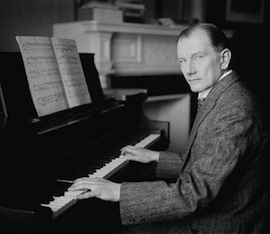
San Francisco Symphony's indefatigable musicians have just returned from a demanding Asian tour and are fully engaged in subscription and holidays concerts, so how do they take time off on a warm, sunny December sabbath (meaning "a day of rest")?
They give a chamber-music concert. And another. Having similar overambition and work ethic, I would have gladly attended both, but — Donnerwetter! — SFS scheduling powers arranged for the two to take place at the same time on Sunday, one in Davies Symphony Hall, the other in the Legion of Honor.
The one I couldn't make was in the Legion, with concertmaster Alexander Barantschik, cellist Peter Wyrick, and pianist Anton Nel performing Haydn's Trio in G Major (Gypsy), Bach's Piano Partita No. 44 in D Major, and Mendelssohn's Piano Trio in D Minor, Op. 49. Missed, alas.
Ready consolation was available in the Civic Center, where Davies was flanked by huge crowds in the Opera House, where the annual Nutcracker run began and other facilities in the neighborhood with various popular events — a big one looked like a graduation ceremony in the Civic Auditorium.

Photos by Janos Gereben
How did the Chamber Music Series fare against other attractions and a glorious day for outdoor activities? Not bad at all. My former police-reporter crowd-estimate experience suggests up to 500.
The program was well balanced: something newish, something fairly rare, and the big, wonderful warhorse John Harbison's 1984 Twilight Music; Ernst von Dohnányi's 1904 Serenade in C Major for String Trio, Op. 10; and Brahms' 1864 Piano Quintet in F Minor, Op. 34.
Violinist Dan Carlson, hornist Nicole Cash, and pianist Marc Shapiro performed the Harbison, written after his first string quartet. The composer contrasted the two works by saying "the quartet shows reaction to the large orchestral works that precede both obviously, being outwardly tense and without illusions; [Twilight Music] shelters abstract structural origins beneath a warmer exterior."
Even with the performance's mellow (and yet percussive) sound, I didn't really hear the "warm exterior" until the concluding Adagio Cantabile. The first four movements — all very brief as the whole work lasts only about a quarter hour — seemed jagged, fractured.
The performers matched the work's assignments exactly. Katie Kadarauch's viola dominated the trio, Yukiko Kurakata's violin provided a lyrical corroboration, and Sébastian Gingras' cello helped to balance the two.
The Presto, Harbison says, "dissolves into the twilight of half-notes that named the piece," and the third section is the origin of the piece's "intervallic character." (That must have something to do with intervals, of course, but the phrase is puzzling — what music is not characterized by intervals?!)
Carlson's violin and Cash's horn seemed to occupy different worlds, while Shapiro's piano at times led, otherwise commented from the sideline. Harbison speaks of the final section's "image of separation," my own experience was that it was here that the instruments, and the music, finally cohered.
No disagreements with the composer in Serenade, a superb, romantic work. Similarly to Will Rogers' experience with people, I never met a Dohnányi chamber-music piece I didn't like, and Serenade is near the top of this personal hit parade.

The performers matched the work's assignments exactly. Katie Kadarauch's viola dominated the trio, Yukiko Kurakata's violin provided a lyrical corroboration, and Sébastian Gingras' cello helped to balance the two.
The opening March is a simple thematic statement, leading to the lushly singing Romanza, led by the viola. The Theme and Variations movement is wonderfully complex and yet immediately accessible, each instrument getting its share of the limelight briefly, but never at the expense of the work's ensemble sound. The final Rondo is flowing quietly until an energetic, robust outbreak, a miniature fugal romp.
The Brahms Quintet belongs in a concert hall; it could overflow the confines of a parlor. Four among the orchestra's top string players — Nadya Tichman, Dan Nobuhiko Smiley, Jonathan Vinocour, and Amos Yang — were joined by Yefim Bronfman, the famed pianist blending in with the ensemble in a selfless, exemplary manner.
Besides glowing sounds all around, the five handled the work's difficult cross-rhythms, pizzicatos and staccatos with elegant aplomb. Both the large opening Allegro and the similar extensive Finale made brilliant impression, and the closing race to the end (called by annotator James M. Keller "more a dance of death than a victory") was exhilarating.
Mark the calendar for remaining SFS chamber-music concerts: Feb. 3 and 24, April 7 and 21, May 12 and 19, and June 23. In addition to the great experience at these events, ticket prices are also attractive,

